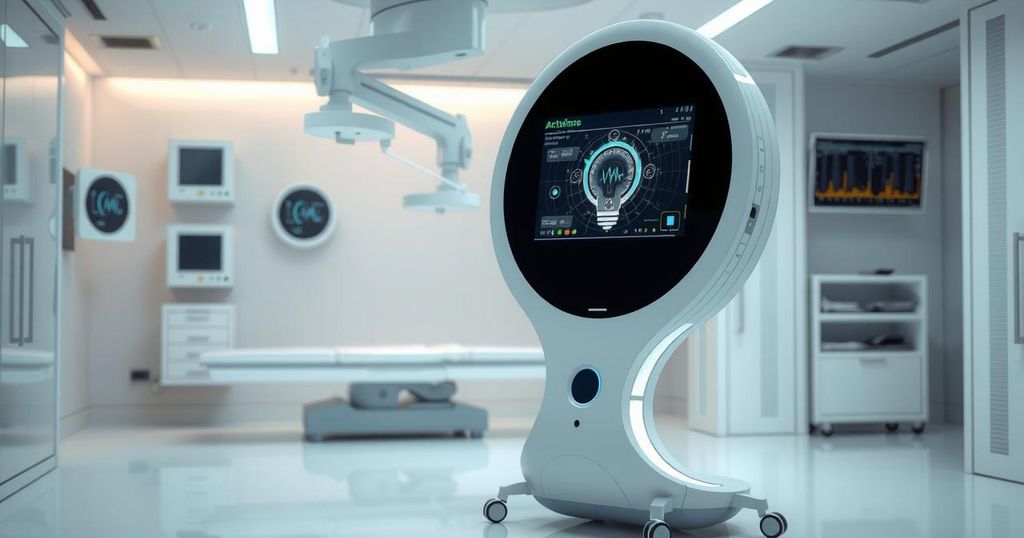Analysis of Key Players in the AI/ML Medical Device Market: Growth and Challenges
The AI/Machine Learning Medical Device Market is forecasted to surpass USD 26.87 billion by 2031, driven by advancements in technology and investment in healthcare AI. The demand surged post-COVID-19, facilitating greater research and development of AI products. North America leads the market, while regulatory challenges and cybersecurity concerns create potential hurdles amidst continuous innovation.
The Artificial Intelligence/Machine Learning Medical Device Market is anticipated to soar past USD 26.87 billion by 2031, with a remarkable CAGR of 22.72% during the forecast period. The market remains diverse, witnessing continuous approval of innovative products equipped with FDA and CE certifications. This burgeoning sector thrives on technological enhancements and substantial investments aimed at advancing healthcare AI, promising improved diagnostic efficacy and operational productivity through AI-based medical devices.
The pandemic catalyzed a surge in the demand for AI-oriented solutions within healthcare, providing a stimulus for market growth. Researchers are keenly exploring AI applications to optimize diagnostic capabilities, further fueled by breakthroughs in deep learning algorithms and the influx of novel products into the market. New local firms are emerging, heightening the utilization of AI technologies for therapeutic purposes, thus expanding the market’s potential.
Leading players in the AI/ML medical device landscape include Aidoc Medical, Ltd., Canon Inc., and General Electric Company, among others. The diversity of this market is evident with established names like CellaVision AB and Clarius Mobile Health Corp. These companies are key contributors to the ongoing evolution and expansion of AI applications in medical devices across various clinical areas, such as radiology and cardiology.
Market drivers include the essential role of AI in identifying diseases that may be difficult to detect, such as genetic disorders and early-stage cancers. Innovations like IBM Watson Genomics exemplify the potential of AI in health diagnosis, collaborating cognitive computing with genomic data. Challenges persist, with data sharing and cybersecurity concerns potentially hampering market growth, as well as issues related to bias in AI algorithms affecting diagnostic accuracy.
Geographically, North America is positioned to dominate the market due to its robust healthcare infrastructure and funding. The Asia-Pacific region is expected to experience rapid growth fueled by advancements in healthcare, an increase in AI startups, and a growing adoption of sophisticated technologies. Recent collaborations, like the merger between NANO-X IMAGING LTD and Zebra Medical Vision, underscore the drive towards enhanced healthcare delivery through AI integration.
The Artificial Intelligence/Machine Learning Medical Device Market integrates cutting-edge technologies to enhance healthcare delivery. With growing recognition of the role of AI in healthcare, particularly in diagnosis and treatment, the market is ripe for transformation. Various stakeholders, from established corporations to emerging startups, are contributing to a rapidly evolving space where innovation meets the pressing demands of modern medicine. Investments and advancements in AI technologies are pivotal in addressing current healthcare challenges, especially in the wake of global health crises.
In conclusion, the Artificial Intelligence/Machine Learning Medical Device Market is experiencing significant growth potential driven by technological advancements and increased demand for efficient healthcare solutions. Despite challenges such as cybersecurity and data bias, the ongoing expansion and innovation within this sector promise enhanced diagnostic capabilities and improved health outcomes. Key players continue to push the envelope in AI applications, thereby shaping the future of medical devices and patient care.
Original Source: www.openpr.com




Post Comment